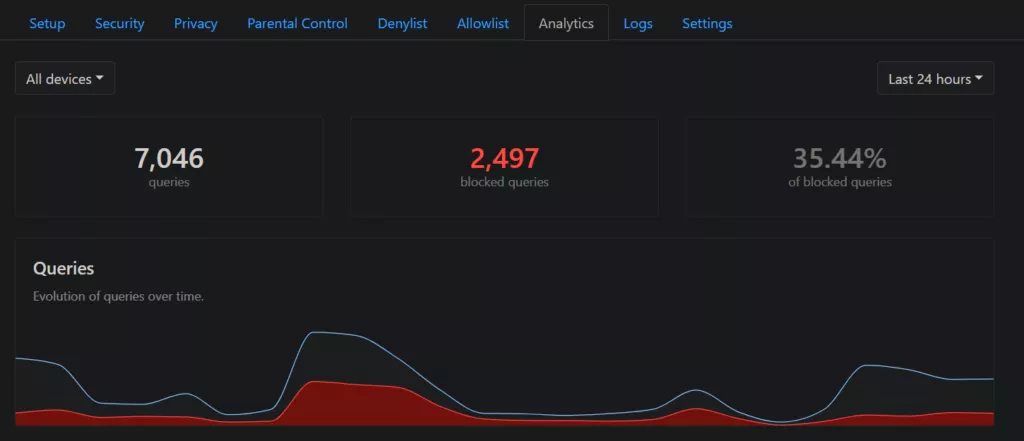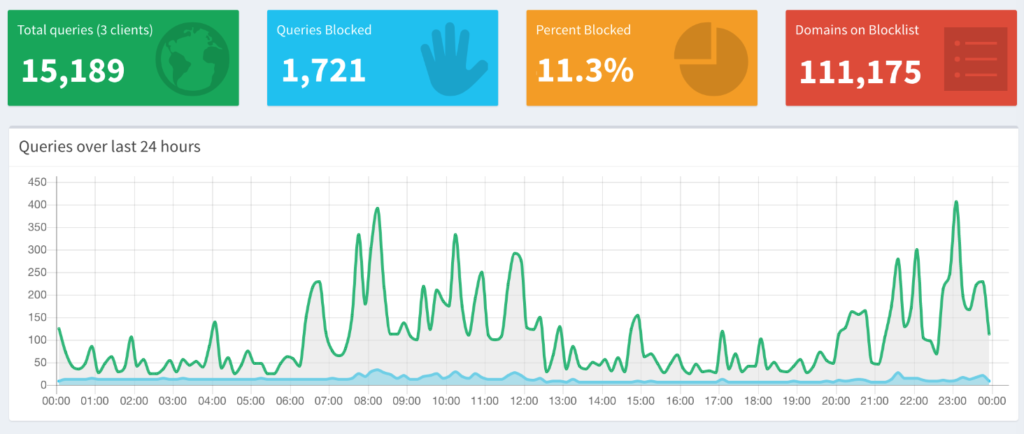Table of Contents
NextDNS and Pi-hole are two well-known DNS blockers that provide similar features, but differ in their implementation. NextDNS operates as a cloud-based service, while Pi-hole functions as a self-hosted solution. The advantages and disadvantages of each approach depend on the user’s needs. In this article, we will compare cloud-based versus self-hosted DNS blockers based on my personal experience with NextDNS and Pi-hole.
Other cloud-based services, such as Control D, and other self-hosted solutions, such as AdGuard Home, are also great options. However, comparing every DNS blockers is beyond the scope of this article. Therefore, we will only focus on NextDNS and Pi-hole.
What is DNS?
DNS (Domain Name System) is an essential protocol used to translate human-readable domain names into IP addresses, enabling users to access websites and other online services. DNS blockers deny access to undesirable domains by redirecting DNS queries to a “blackhole”.
DNS blockers work by analyzing DNS queries and comparing them to a blocklist of unwanted domains. When a user tries to access a blocked domain, the DNS blocker prevents the request by not resolving the domain, thereby providing a safer, ad free, and more secure online experience.
Cloud DNS Blocker: NextDNS

Pros
- Global availability with low latency
- Great up-time
- Easy to set up and maintain
- Advanced malware detection and AI features
- Pre-configured blocklists
- Easy to use web interface
Cons
- Potential privacy concerns (it’s important to note that NextDNS has a strong privacy policy, but some users may still have concerns about their data going through a third-party service)
- High cost compared to some self-hosted alternatives
- Lacks advanced networking features
- Limited customization of blocklists
Self-hosted DNS Blocker: Pi-hole

Pros
- Free and open-source
- Advanced blocklist customization
- All data is stored locally
- Built in DHCP server and other advanced networking features
- Easy to use web interface
Cons
- Limited to local network use unless configured with a VPN (higher latency)
- Requires a dedicated device to host (such as a Raspberry Pi)
- Up-time concerns may arise with self-hosting and maintenance
When to use Cloud DNS Blockers
Cloud-based DNS blockers are a good choice when users prioritize ease of use, portability, and reliability. With a cloud-based DNS blocker, there is no need to set up or maintain a dedicated device, making it easy to deploy and manage across multiple devices and networks.
Cloud-based DNS blockers are hosted on remote servers, which means they can be accessed from anywhere with an internet connection, making them an ideal solution for users who are constantly on the move or who need to manage multiple devices from different locations. Cloud-based DNS blockers are also very reliable, as they are often hosted on powerful and redundant server infrastructure that is maintained by a team of experts.
When to use Self-Hosted DNS Blockers
Self-hosted DNS blockers are better suited for users who prioritize maximum security and customization over portability and reliability. Self-hosted DNS blockers require users to set up and maintain a dedicated device, such as a Raspberry Pi, which can be more challenging for some users. However, self-hosted DNS blockers provide users with more control over their blocking rules, allowing for a greater degree of customization and fine-tuning.
Additionally, since all data is stored locally on the user’s device, self-hosted DNS blockers can be more secure, as there is no third-party involved in the handling of DNS requests. However, self-hosted DNS blockers may not be as reliable as cloud-based solutions, as they are dependent on the user’s hardware and network connection.
Conclusion
In conclusion, the decision to choose between cloud-based and self-hosted DNS blockers ultimately depends on the user’s specific needs and priorities. While self-hosted DNS blockers provide greater security and customization, cloud-based solutions offer ease of use, portability, and reliability.
In the past, I have used both Pi-hole and AdGuard Home, but ultimately, I found NextDNS to be the most suitable solution for me. The reliability and portability of NextDNS made it easy to set up and maintain, while its advanced features like encrypted DNS and malware protection provided additional layers of security. However, the best DNS blocker for you will depend on your unique needs and preferences, and it’s always a good idea to try out different options to find the best fit.

Interesting comparison. Thanks for the post